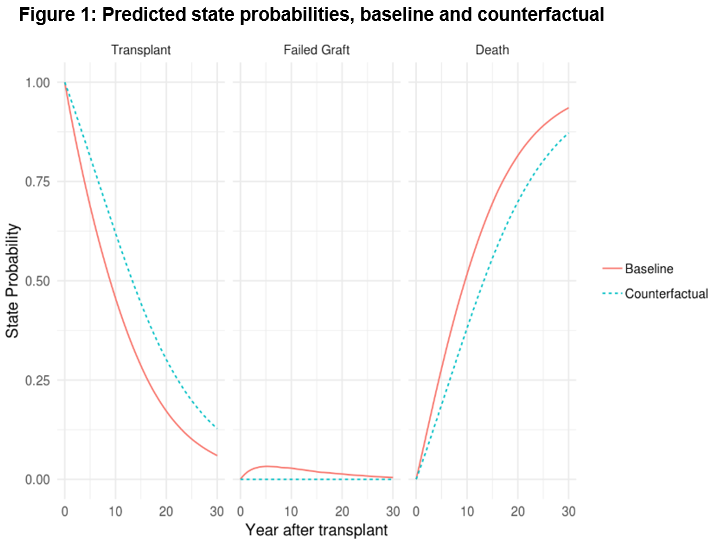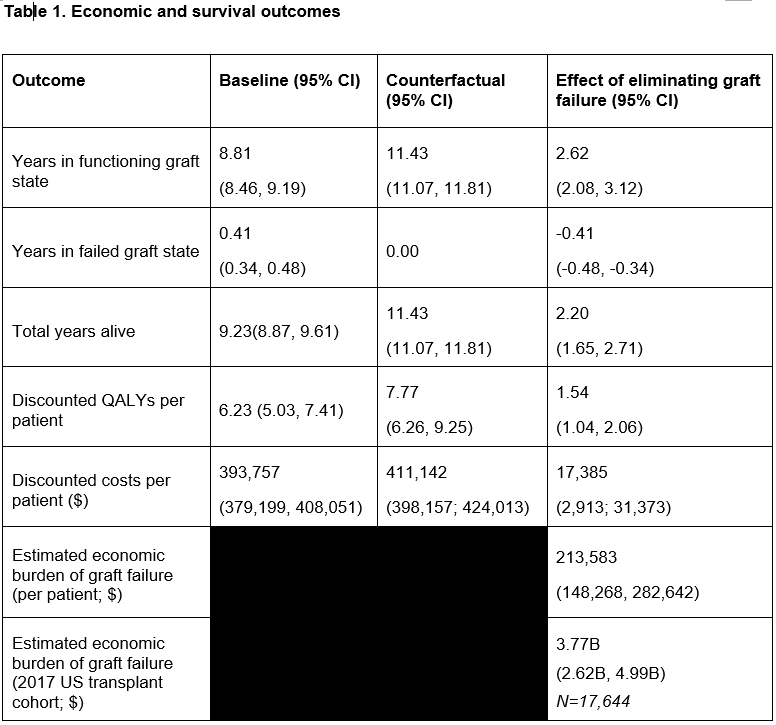The Economic Burden of Graft Failure in the United States
1Precision Health Economics, Oakland, CA, 2Medeor Therapeutics, South San Francisco, CA, 3Hennepin County Medical Center, Minneapolis, MN
Meeting: 2019 American Transplant Congress
Abstract number: 412
Keywords: Economics, Graft failure, Kidney transplantation, Prediction models
Session Information
Session Name: Concurrent Session: Kidney Complications: Late Graft Failure III
Session Type: Concurrent Session
Date: Tuesday, June 4, 2019
Session Time: 2:30pm-4:00pm
 Presentation Time: 2:54pm-3:06pm
Presentation Time: 2:54pm-3:06pm
Location: Veterans Auditorium
*Purpose: Despite recent advances, graft failure imposes a substantial burden on kidney transplant recipients. This study is the first to quantify this burden in economic terms.
*Methods: We estimate economic burden (the total value of increased health spending and monetized quality adjusted life year [QALY] losses attributable to graft failure) using two versions of a model where simulated transplant recipients transition between health states. In the baseline version, patients were at risk for both graft failure and death. In the counterfactual version, risk of graft failure was set to zero. We estimated lifetime costs, survival, and QALYs for both versions and calculated the burden of graft failure as the difference between them. We used transplant registry data to estimate transition probabilities and obtained cost and utility parameters from the literature. All monetary values were inflated to 2018 USD.
*Results: When the risk of graft failure is set to zero, patients persist in the functioning graft state for a longer duration and experience an average survival gain of 2.2 years (Figure 1). We estimate the average burden of graft failure to be $213,583 per patient, largely due to reduced longevity and quality of life. With 17,644 kidney transplant recipients in 2017, we estimate the population economic burden of graft failure to be $3.77 billion (Table 1).
*Conclusions: The economic burden of graft failure is substantial and primarily due to impacts on longevity and quality of life. Efforts aimed at reducing graft failure may have significant clinical and economic impacts.
To cite this abstract in AMA style:
Sussell JA, Silverstein AR, Goutam P, Incerti D, Kee R, Batty DS, Chen CX, Jansen J, Kasiske BL. The Economic Burden of Graft Failure in the United States [abstract]. Am J Transplant. 2019; 19 (suppl 3). https://atcmeetingabstracts.com/abstract/the-economic-burden-of-graft-failure-in-the-united-states/. Accessed February 18, 2026.« Back to 2019 American Transplant Congress


